Who stole the gold of the Russian Empire
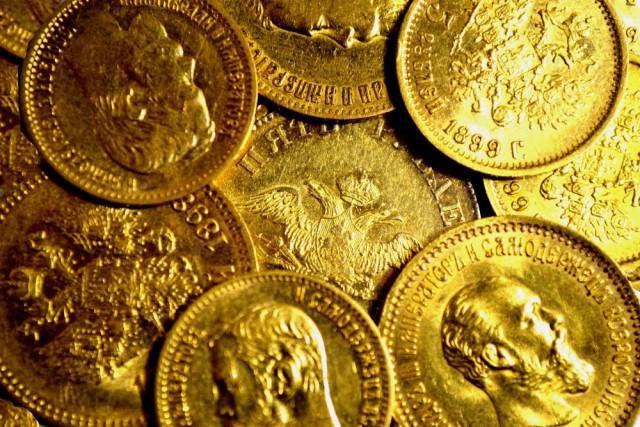
After the October Revolution, most of the gold reserves came under the control of the Bolsheviks. However, the situation in the Volga region was not very good for Soviet Russia. In August 1918, the Bolsheviks decided to evacuate the gold reserve from Kazan, which was attacked by troops of Colonel Vladimir Kappel and the Czechoslovak Corps, made up of former prisoners of war of the Austro-Hungarian army — the Czechs and Slovaks of nationality who were in the Russian Empire during the First World War. But the Bolsheviks did not have time.
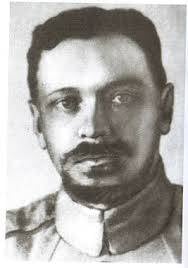
7 August 1918, the troops of Colonel Kappel completely captured Kazan. "Red" managed to take out only 4,6 tons of gold. The rest of the gold reserve, located in Kazan, fell into the hands of Kappelevtsy. Colonel Kappel reported in a telegram to Colonel Stanislav Chechek, commander of the Penza group of the Czechoslovak Corps, that he had got the gold reserves of the Russian Empire totaling 650 million rubles, and 100 million rubles by credit signs, gold and platinum. Vladimir Kappel decided to preserve the gold reserves for the needs of the anti-Bolshevik movement, which required his early evacuation from Kazan to more reliable places that were under complete control of the “whites”.
Gold was transported by ship to Samara, transported from Samara to Ufa, and in November 1918 was delivered to Omsk at the disposal of Admiral Alexander Kolchak. In May 1919 of the year in the Omsk branch of the State Bank, an audit of the gold reserve was carried out, as a result of which the bank’s employees established that there was gold worth 650 million rubles. October 31 1919 of the year gold was loaded onto trains. Under the heavy guard of Kolchak officers, he was to be taken to the east - to Irkutsk. But due to all sorts of obstacles, only 27 December 1919, the gold reserves of the Russian Empire arrived in Nizhneudinsk. Here the military representatives of the Entente forced Admiral Kolchak to renounce their dictatorial powers, after which the gold was transferred to the control of the Czechoslovak Corps, parts of which the Entente considered most reliable.
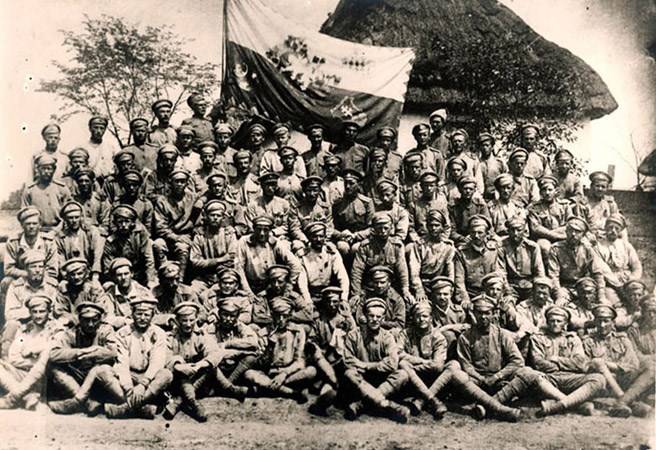
But the Czechoslovak Entente did not meet the expectations. Already 7 February 1920 of the year 409 million rubles in gold from the means of the gold reserves of Russia the Czechoslovak command transferred the Bolsheviks - in the form of payment for the guarantee of safe movement across the territory of Russia from Siberia to Czechoslovakia. It is noteworthy that during the long wanderings across the expanses of the Volga region and Siberia, the gold reserves of the Russian Empire were rapidly declining. It is known that while in the hands of Admiral Kolchak, the gold reserves decreased by 235,6 million rubles. Of these, about 68 million rubles were spent by Kolchak on the purchase of weapons and uniforms for his army, on the payment of salaries. Another 128 million rubles were placed Kolchak in foreign banks, where they sunk into oblivion.
Interestingly, 657 million rubles were exported from Kazan to Samara, and during the re-registration in Omsk only 651 million rubles were found. This circumstance gave reason to suspect the command of the Czechoslovak Corps and its military personnel to steal a part of the gold reserve during its transportation, for which the Czechoslovakians were responsible. The officers of the Czechoslovak Corps who returned from Russia even managed to open their own bank in Czechoslovakia.
But Czechoslovak prisoners of war were not the only ones who had a hand in plundering the gold reserves of the Russian Empire. An impressive amount of gold was in the hands of a very interesting and outstanding personality - Ataman Grigory Semenov. It was his people who in September 1919 in Chita seized a train carrying 42 million rubles from the so-called. "Kolchak" gold fund.
Ataman Grigory Semenov at that time played a special role in Eastern Siberia and the Far East. This man was one of the “people's commanders” - chieftains born of the Civil War and pursuing their goals, often going against the aspirations of the more organized part of the “White movement”. In the 1917 year, when the October Revolution took place, Grigory Mikhailovich Semenov was just 27 years old. It is now the chieftains of the Civil War seem to us to be elderly people, in fact, almost all of them were about thirty years old — Semenov, Makhno, and Grigoriev, and many other atamans.
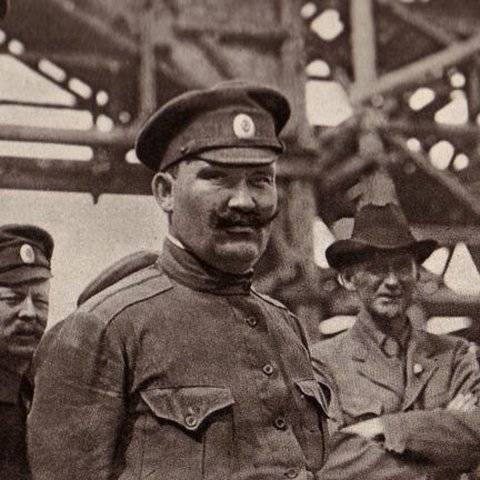 Despite his youth, behind ataman Semenov had an impressive military past. In 1911, he, the son of Cossack Mikhail Semenov, from the guard of Kuranzh, the village of Durulguevskaya, the Zabaikalye Cossack Army, graduated from the cornet of the Orenburg Cossack Junker School and was distributed to the 1 of the Verkhneudinsky regiment of the Transbaikalian Cossack army. He was not a stupid man, so he served in the military topographic team in Mongolia. At the same time, he established friendly relations with many representatives of the Mongolian elite of that time, which was facilitated by his excellent command of the Mongolian language. In 1911-1912 Semenov served in the 2-th Trans-Baikal Battery, then in the 1-th Chita Regiment and in the 1-th Nerchinsk Regiment in the Amur Region. The Nerchinsky regiment was commanded at that time by Baron Peter Wrangel, and another significant character of the Civil War, Baron Roman Ungern von Sternberg, also served there. So three outstanding in the future commander were in one piece.
Despite his youth, behind ataman Semenov had an impressive military past. In 1911, he, the son of Cossack Mikhail Semenov, from the guard of Kuranzh, the village of Durulguevskaya, the Zabaikalye Cossack Army, graduated from the cornet of the Orenburg Cossack Junker School and was distributed to the 1 of the Verkhneudinsky regiment of the Transbaikalian Cossack army. He was not a stupid man, so he served in the military topographic team in Mongolia. At the same time, he established friendly relations with many representatives of the Mongolian elite of that time, which was facilitated by his excellent command of the Mongolian language. In 1911-1912 Semenov served in the 2-th Trans-Baikal Battery, then in the 1-th Chita Regiment and in the 1-th Nerchinsk Regiment in the Amur Region. The Nerchinsky regiment was commanded at that time by Baron Peter Wrangel, and another significant character of the Civil War, Baron Roman Ungern von Sternberg, also served there. So three outstanding in the future commander were in one piece. During the First World War, Semenov went to the front as part of the 1-th Nerchinsky regiment, fought on the territory of Poland, where in the first months of the war he was presented to the Order of St. George IV degree for repulsing the regimental flag captured by the enemy and the brigade train. Grigory Semenov served as a regimental adjutant, then became the commander of the 6 of the hundreds of the Nerchinsky regiment. At the end of 1916, Semenov transferred to the 3-th Verkhneudinsky regiment, fought in the Caucasus and participated in a campaign in Persian Kurdistan, was promoted to captain.
In 1917, Semenov appealed to the then Minister of War Alexander Kerensky with a proposal to form a Mongol-Buryat regiment in Transbaikalia that would fight as part of the Russian army. After the October Revolution, he managed to secure a similar resolution from the Petrograd Soviet of Workers 'and Soldiers' Deputies. However, soon the Chita Bolsheviks realized that under the trademark of the Mongol-Buryat Regiment, Semenov created an armed formation of an anti-Bolshevik orientation, and decided to arrest him. But it was too late - Semenov revolted and at the beginning of 1918, he occupied Dauria - the eastern part of Transbaikalia. However, in March 1918, he was forced to retreat to Manchuria, where he continued to form his own Special Manchurian Detachment (OMO), which included Transbaikalian Cossacks, officers, a detachment of Serbs from among the Austro-Hungarian prisoners of war, two infantry regiments staffed by the Chinese , the Japanese detachment of Captain Okumura. The number of OMOs by April 1918 was reached by 3000 people.
Almost from the very beginning of the hostilities in Transbaikalia, the ataman Semenov was unable to improve relations with Admiral Kolchak. The admiral was a man of Russian military traditions, a champion of tough discipline and hierarchy, while the Cossack Semenov was more inclined towards more voluntary forms of military organization. The ataman and the admiral did not find a common language, although they fought together against the Bolsheviks and they had to reckon with each other.
Ataman Semenov and his subordinates were distinguished by extreme cruelty. Semenovtsy mercilessly dealt not only with their opponents who were captured, but also with civilians. The subordinates of Semenov did not disdain open crime, mocking civilians - women were raped, they could easily kill both the old man and the child. Naturally, looting of towns and villages was a common thing for the Semenovs. When Semenov seized 42 million rubles of “Kolchak gold”, he spent most of them on the purchase of weapons and uniforms for his army.
Almost from the first months of hostilities against the Bolsheviks, Semenov developed a special relationship with the Japanese command. It was the Japanese who supplied Semenov weapons, its Special Manchu Detachment included 540 Japanese soldiers and 28 Japanese officers. Semenov paid handsomely for Japanese weapons. In March, 1920 of the year he handed over to the Japanese command in the port of Far Far 33 a box with gold coins - about 1,5 tons of gold. This money was placed in the Chosen Ginko Bank, and then some of it was transferred to the accounts of General Mikhail Podtyagin, who served as the military attache of the Far Eastern Army in Tokyo. Podtyagin was one of the key intermediaries in the purchase of weapons from Japan.
By October 1920, the position of the Semyonov detachments who fought with units of the People’s Revolutionary Army of the Far Eastern Republic had seriously deteriorated. 22 October 1920, the Semenovites left Chita, which was for a long time the capital of the ataman, and retreated in the direction of Manchuria. Ataman Semenov himself fled from Chita on an airplane. In early November 1920, he turned up in Harbin. Naturally, the Semenovites also took out the remnants of the gold reserves, which were under their control.
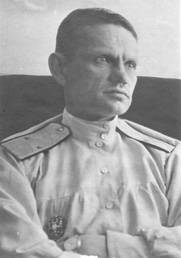 In November, Major General Pavel Petrov, who served as head of the rear of the Far Eastern Army, Ataman Semenov, handed over the head of the Japanese military mission to Colonel Isome for temporary storage of 1920 boxes with gold coins and 20 boxes with ingots worth 2 million rubles. Of course, the price of the receipt, which the Japanese gave to General Petrov, was zero. No one subsequently returned this gold to Petrov, although Semenov’s general repeatedly tried to appeal to a receipt signed by a Japanese colonel.
In November, Major General Pavel Petrov, who served as head of the rear of the Far Eastern Army, Ataman Semenov, handed over the head of the Japanese military mission to Colonel Isome for temporary storage of 1920 boxes with gold coins and 20 boxes with ingots worth 2 million rubles. Of course, the price of the receipt, which the Japanese gave to General Petrov, was zero. No one subsequently returned this gold to Petrov, although Semenov’s general repeatedly tried to appeal to a receipt signed by a Japanese colonel.In 1921, Ataman Semenov finally left Russia, moving to Japan. In 1922, General Pavel Petrov also moved to Manchuria, who, after Semenov’s flight, served as Chief of Staff of the Amur Zemskaya District, General Mikhail Diterikhs. General Pavel Petrov in emigration occupied the position of the Head of the Office of the Far Eastern Branch of the Russian All-Military Union (EMRO), based in Mukden. After emigrating to Manchuria, the leaders of the Semenovtsy repeatedly tried to return the money due to them. In 1922-1929 Ataman Semenov and General Pododyagin were suing the courts of the Japanese Empire for 1 million 60 thousand yen, which remained in accounts in Japanese banks.
In 1933, General Pavel Petrov arrived in Japan on the instructions of General Mikhail Diterikhs, trying to secure the return of the money that was transferred for temporary storage to Colonel Isome. The trial, initiated by General Petrov, significantly delayed and lasted until the Second World War. Petrov even stayed in Japan, having received the post of head of the department of the Russian All-Union Union in Japan. But to achieve the return of money he did not succeed. Already during World War II, General Petrov agreed with the proposal of the Japanese authorities to renounce claims in exchange for payment by the Japanese authorities of all legal expenses for many years of legal proceedings.
Ataman Semenov, after emigration, finally transferred to the service of his long-time masters - the Japanese. The Japanese leadership provided Semenov's house in Dairen (now Dalian in Liaoning Province in the People's Republic of China) and a monthly pension of 1000 gold yen. Semenov led the Far Eastern Cossack Union, and from 1934 he began to actively cooperate with the Bureau of Russian Emigrant Affairs in the Manchurian Empire (BREM), which was engaged in the training of saboteurs from the White emigres and the Russian youth, followed by the transfer to the territory of the Soviet Union. Comprehensive assistance to the Japanese intelligence ataman Semenov provided the entire Second World War.
In August 1945, Grigory Semenov was arrested by Soviet troops in the territory of Manchuria. 26 August 1946, the trial of the Russian Japanese emigrants who had been captured in Manchuria began. Semenov was also in the dock, who on August 30 of the year 1946 was sentenced to death by hanging and was hanged in prison on the same day at 23. General Pavel Petrov was more fortunate - since he lived in Japan, he was not arrested by the Soviet authorities. In 1947, he moved to the United States and began to serve the new masters, the Americans, as a teacher of Russian at a military school in Monterey. He lived to old age and died in the 1967 year at the age of 85.
Information